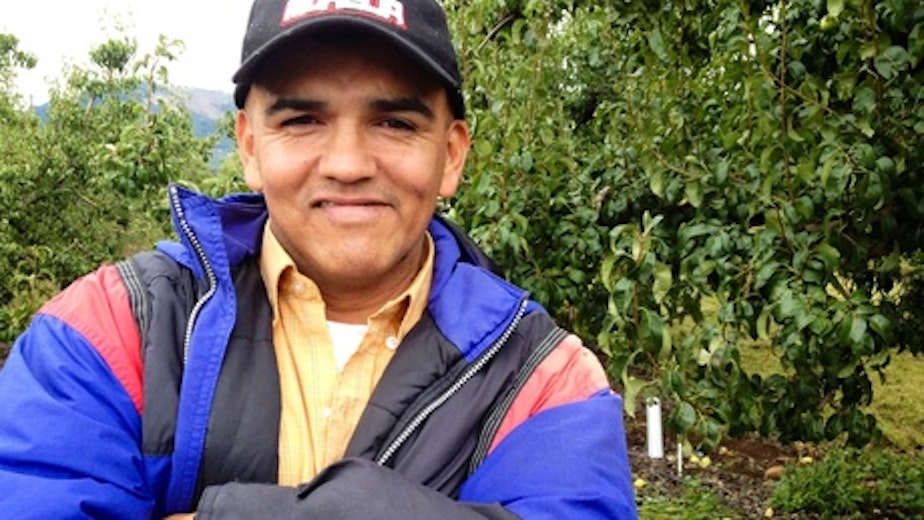How Farmworkers Experience A Warming Climate

HOOD RIVER, Ore. — For 20 years, Victor Gonzales has traveled the West picking crops. In the Northwest that means pears, cherries and apples.
Right now, he’s working at a Hood River pear orchard. In the summer, temperatures here can reach 100 degrees. Gonzalez remembers one day when he’d been working really hard, sweating more than normal.
Gonzales felt like he was going to pass out. He was shaky and very sleepy, he says through a translator. Instead of sleeping, he went to the farmworker housing unit and drank a lot of water and rested until he recovered.
Gonzales says a friend of his once went to the hospital after the heat in the fields left him weak and vomiting.
Harder Work In A Hotter Climate
Sponsored
Farm labor has always been strenuous. Dealing with the heat has always been a part of the job.
But researchers say climate change is causing more outdoor workers to get sick more often.
Oregon State University’s Jeffery Bethel has been studying the connection between warming temperatures and farmworker health.
Bethel says climate models show average summer temperatures in the Northwest are increasing. By mid-century, they could be as much as 9 degrees higher than they are today.
